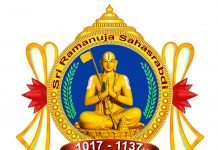Bhubaneswar: The places of worship has drawn attention in recent times for the conflicts around this. Few years back, the conflict that was created on the Gyanvapi Mosque, in Varanasi has now reach at Ajmer, Rajasthan through the places like Mathura, Sambal, Badayu, and Kashi , Uttarakhand. Five men died in police fire in 24 November in Sambal, Madhya Pradesh during the violence created in the course of an archaeological survey in the 16th century Jama Mosque. While this fire is still alive, another petition has been filled by the regional court for conducting a survey regarding an existence of a temple under the 800 year old dargah in Ajmer. These are the means of creating religious reinforcement in the society to keep the minorities terrorized communal politics.
The politics of religion and conflict on religious places are futile at the present times. Because there are worship place (special arrangements) Act 1991 in our country. This Act states, the characteristics of no worship places can be altered from15, August 1947. Even the Supreme Court’s five jury members team in the Ayodhya matter had agreed with the legitimacy of this law and stated this as an inseparable part of the constitution. No other religious place can be altered other than the controversial Babri Masjid according to the jury members. This can only be cited unfortunate that certain vested interest groups create these repeated conflicts using the religious places and the lower courts granting immediate permission to investigate the matter. This is not just propagating violence among communities but disobeying the order of the Supreme Court as well. The lower courts should consider it’s impacts on the society before giving such permissions. Because, presently there is no scope for altering the character of any religious place in the country. So such steps by the lower courts are unnecessary and indicative of spreading communal propaganda by destroying the peace and brotherhood in the nation.
The then government had implemented the special Act for worship places in 1999 for bringing a permanent solution of these conflicts created based on religious or worship places. The Article 2 of this law states all the religious places shall be reserves as of 15, August 1947. Article – 3 states that one religious place cannot be changed to another. Let alone any other religion, no other groups in the same religion cannot be take over that place. As per article- 4 (1), all the religious places shall be unchanged as of 15 August 1947. Article – 4 (2), no permission shall be granted to encourage any lawsuit and conflicts relating to religious places. According to article – 5, the controversies related to Ram Janmbhumi and Babri Masjid shall be out of this law as they are subjudice in court. The Babri Masjit matter was already subjudice in the court in 1947, so only that case was kept out of this law. As per article- 6, whoever violates this law will be punished with three years of imprisonment and penalty.
Irrespective of all these legal provisions there has been several conflicts created based the religious places. The Supreme Court has another controversial decision behind such conflicts that in 20 May, 2022, a team of jury members headed by the then supreme court judgeD.Y Chandrachuda had supported the order of the lower court to conduct survey in the Gyanvapi Masjid of Varanasi. This order states that though it is indicative of the fact that no religious place can be changes as per the law passed in 1999 but there is no such provision that denies to investigate the primary character of any religious place. So this survey is permitted to be performed. The decision by Judge Chandrachuda has opened doors for the conflicts on religious places and at the same time it also violates the legal provisions implemented in 1999 as well as the core intention the constitution. After the verdict of the supreme court the communal powers in the country had started to create controversies around the religious places and begun the dangerous process one by one. The lower courts also filled the instructions of the supreme court immediately by granting permission for conducting the survey.
The question here is whether these conflicts are necessary in this situation in our country and whether the government will be able to declare any religious place for example a mosque or dargah as a temple even if there would be any proof found under the ground.
-OdishaAge



















